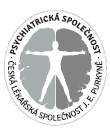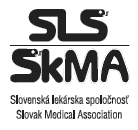Česká a slovenská psychiatrie

Časopis
Psychiatrické společnosti ČLS JEP
a Psychiatrickej spoločnosti SLS
původní práce / original article
SPOKOJENOST NEMOCNÝCH S LÉČBOU ANTIPSYCHOTIKY
PATIENT
Masopust J.1, Libiger J.1, Köhler R.1, Urban A.1, Čermáková E.2
Psychiatrická klinika LF UK a PN, Hradec Králové,
přednosta prof. MUDr. J. Libiger, CSc.1
Katedra lékařské biofyziky LF UK, Hradec Králové,
přednosta doc. Ing. J. Hanuš, CSc.2
přednosta prof. MUDr. J. Libiger, CSc.1
Katedra lékařské biofyziky LF UK, Hradec Králové,
přednosta doc. Ing. J. Hanuš, CSc.2
SOUHRN
Úvod: Faktory ovlivňující spolupráci souvisejí se samotným pacientem, s jeho prostředím, nebo s lékařem a samotnou léčbou. Důležitou příčinou nonadherence jsou nežádoucí účinky antipsychotické medikace. Jedná se především o iniciální dysforickou reakci, sedaci, extrapyramidové nežádoucí účinky, akathizii, sexuální dysfunkci a nárůst hmotnosti. Subjektivní spokojenost s léčbou a postoj k léčbě antipsychotiky ovlivňují komplianci.
Metodika: Psychopatologie byla vyšetřena pomocí stupnic PANSS (Positive and Negative Symptoms of Schizophrenia) a CGI (Clinical Global Impression). Subjektivní spokojenost s léčbou jsme měřili pomocí SWN (Subjective Well-being Neuroleptics Scale). Postoje k farmakologické léčbě jsme zjišťovali dotazníkem DAI (Drug Attitude Inventory).
Výsledky: Vyšetřili jsme 75 pacientů (25 žen) průměrného věku 34,6 let (medián věku 32 let) s diagnózou schizofrenie. Významně spokojenější s léčbou byli pacienti v remisi, léčeni monoterapií a celkově nižšími dávkami antipsychotik.
Závěry: Subjektivní spokojenost nemocných s léčbou se stává důležitým měřítkem pro hodnocení celkové účinnosti a snášenlivosti léčby antipsychotiky. Smysluplná léčba antipsychotikem v monoterapii s minimem výskytu nežádoucích účinků může zlepšit subjektivní spokojenost pacientů a kompliance s léčbou.
Klíčová slova: subjektivní spokojenost s léčbou, postoj k léčbě, monoterapie, remise, nežádoucí účinky antipsychotik, adherence.
SUMMARY
Masopust J., Libiger J., Köhler R., Urban A., Čermáková E.: Patient's Subjective Well-being with Antipsychotic Treatment
Objectives: The factors that influence compliance with antipsychotic treatment in schizophrenia are related to the patient, the patient's environment, the attending physician, and the treatment itself. Important causes of non-adherence are adverse effects (APs) of antipsychotics. Initial dysphoric reaction, sedation, extrapyramidal symptoms, akathisia, sexual dysfunction and obesity belong to the most frequent APs. The patient's subjective well-being and attitude toward antipsychotic medication are considered to be important for compliance.
Methods: Severity of symptoms was estimated using the PANSS (Positive and Negative Symptoms of Schizophrenia) and CGI (Clinical Global Impression) scales. Self-rating Well-being Neuroleptic Scale (SWN) was applied to evaluate the patients' subjective well-being. We also administered the Drug Attitude Inventory (DAI) to evaluate the attitude of the study subjects toward antipsychotic medication.
Results: Seventy-five outpatients (women N = 25) at the average age of 34.6 years (median 32 years) with the diagnosis of schizophrenia were included into the study. The patients with the most pronounced subjective well-being were in remission, treated with monotherapy, and low doses of antipsychotic drugs.
Conclusion: Subjective well-being is increasingly being accepted as a valid and important measure of antipsychotic treatment outcomes and tolerability Meaningful way of antipsychotic treatment in monotherapy with minimal APs can increase the patient's subjective well-being and compliance.
Key words: subjective well-being, attitude toward medication, monotherapy, remission, adverse events of antipsychotic drugs, adherence.





